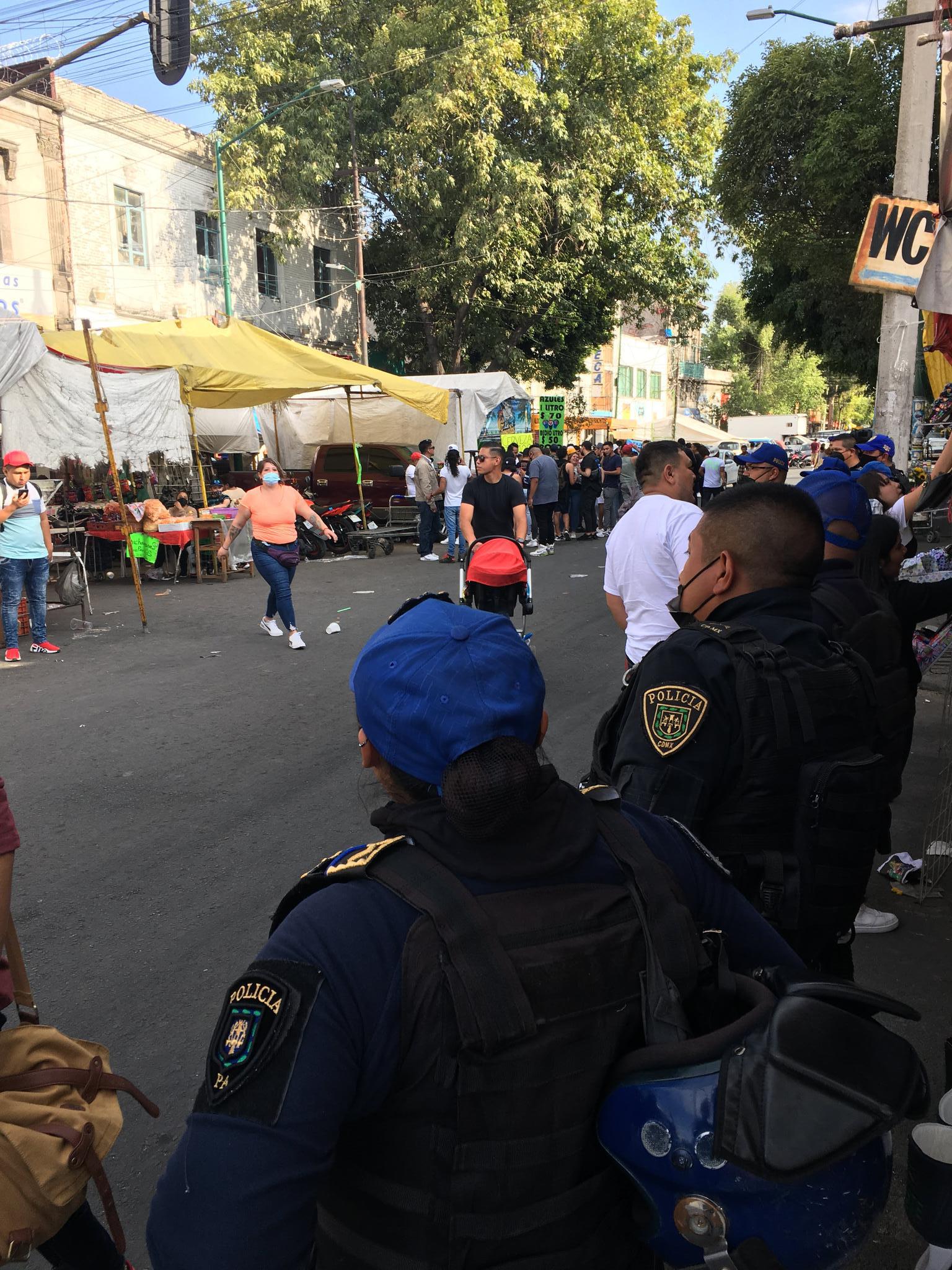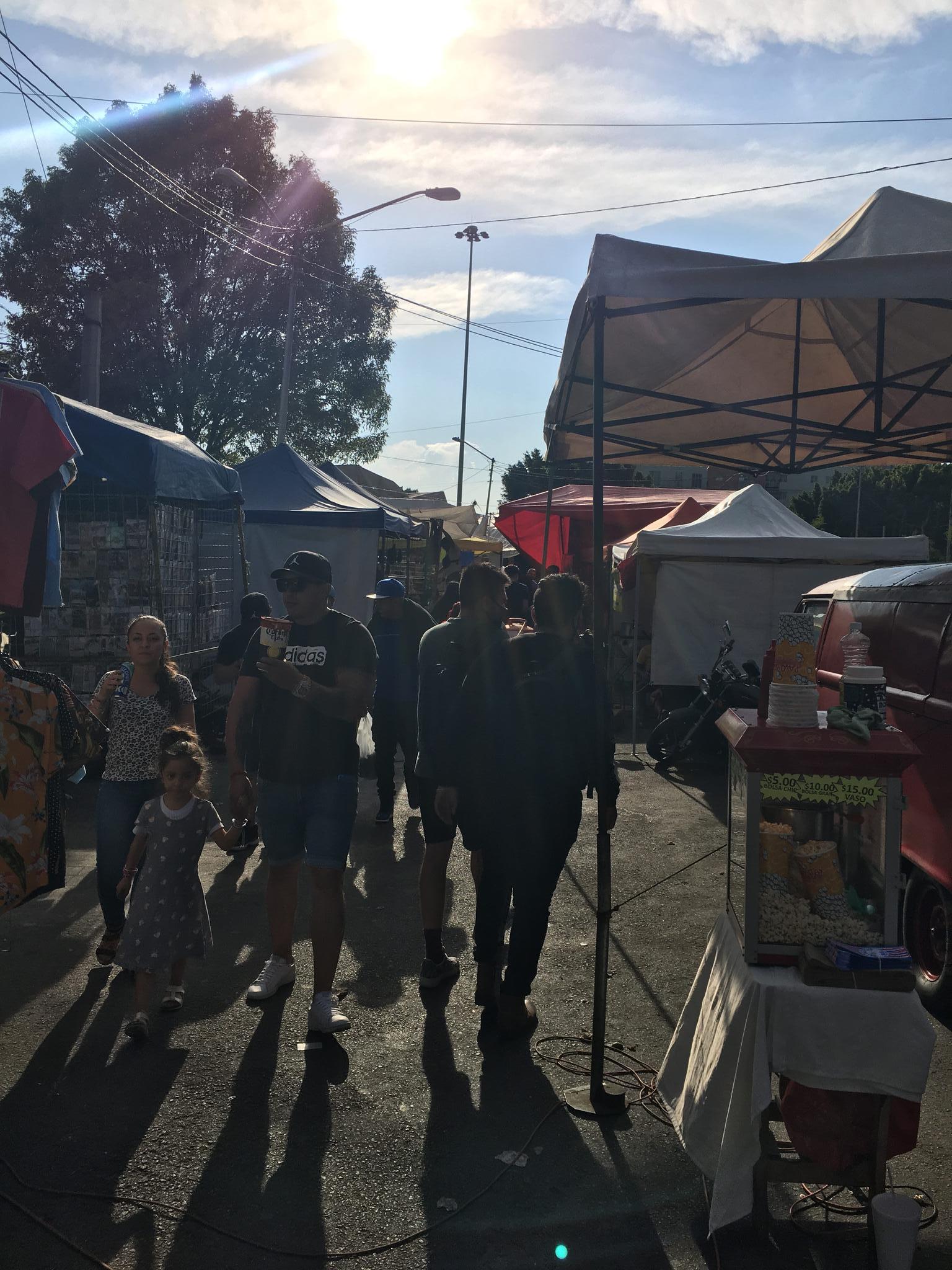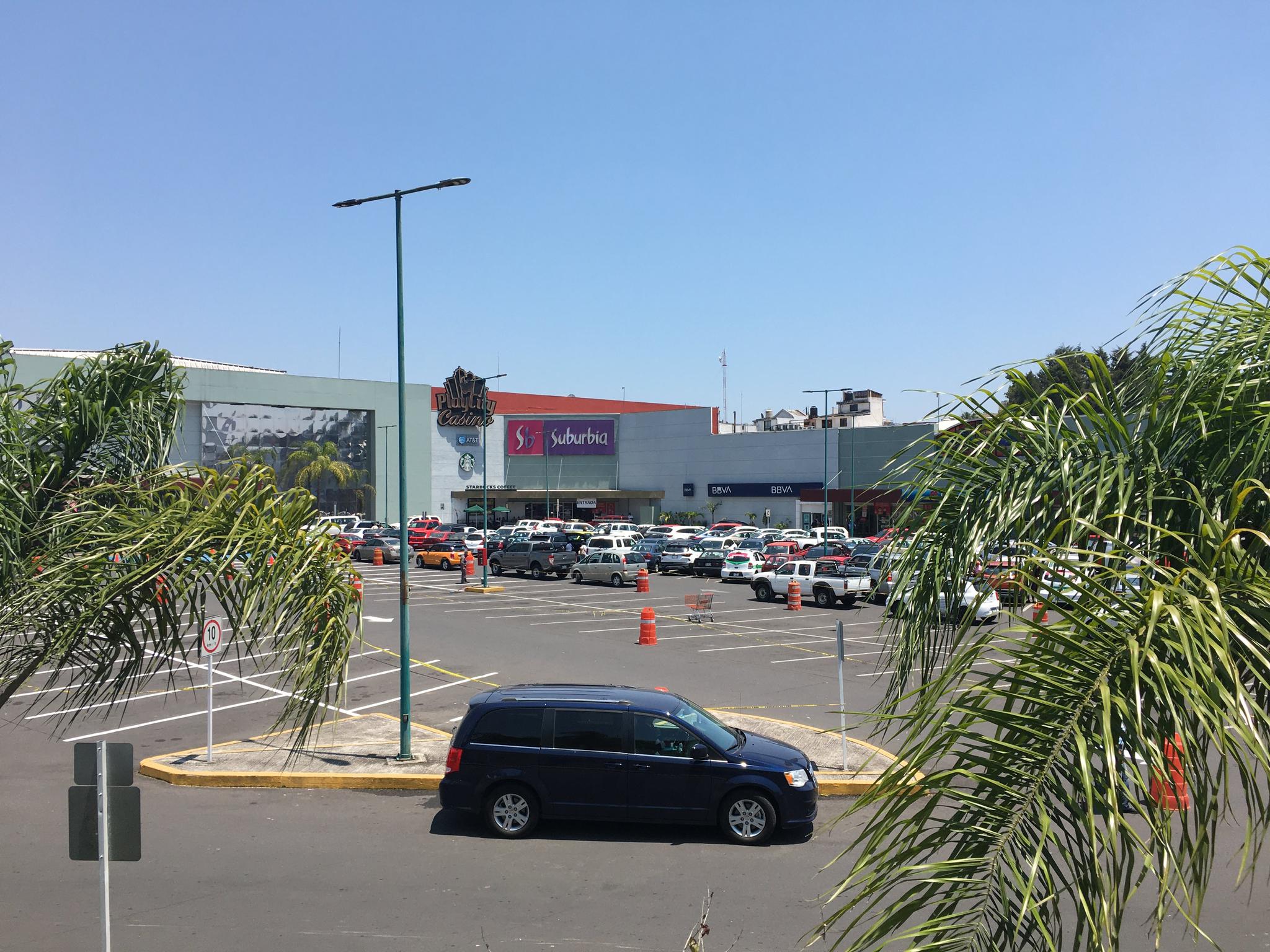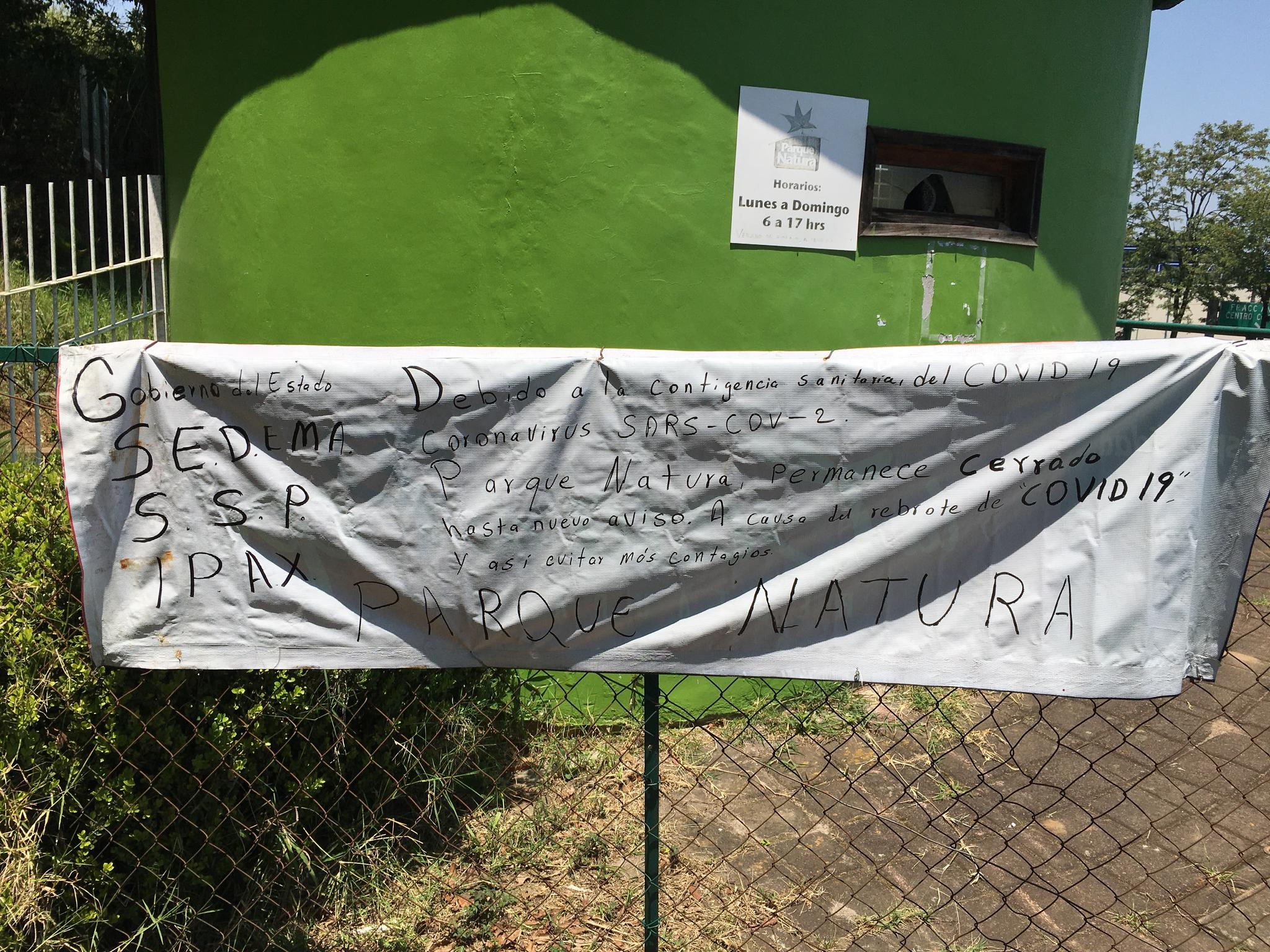Maskless in Mexico's Markets
Mexico's Covid disaster is a by-product of a poor government response, an unconcerned citizenry and global inequalities
April 2021
Mexico City
The Saturday outdoor market (or tianguis) is packed and many walk without masks. Many of those with masks do not cover their noses. We see groups of police watching the crowds. Unfortunately, there is no government mask mandate for them to enforce. Some do not believe in Covid or downplay the severity and as such do not mask a friend tells me. In the market, we duck into an open-air taco stand for lunch.
The waiter’s mask is pushed below his mouth as he animatedly shouts recommendations for which tacos to order. I am so thankful to be vaccinated. My Mexican friends, with whom I am exploring the market, are not so lucky.
“It will probably be well into 2022 before we get vaccinated,” one says. Fortunately for their parents, however, those 60 and older are getting vaccinated as of spring 2021. As such, all of their parents have gotten at least one round of the Russian Sputnik V vaccine.

The lack of a vaccine does not stop life from continuing and many Mexicans have no choice. A large part of the economy is informal and dependent upon in-person sales (like the those in the tianguis). What they earn in a day goes toward the meals of the day.
Life for those in the informal economy is even tougher because a formal employer often provides private health insurance. Without private health insurance, it is difficult to afford Covid treatments. Another Mexican friend had a moderate case of Covid but was lucky to be formally employed and benefit from good health insurance. Her medicines and doctor’s visits were fully covered. “If I did not have insurance through work, I would not have been able to afford the treatments,” she says. “I am lucky, but so many Covid patients go without crucial care.”
An August 2020 analysis found that it could take decades of wages at the average Mexican salary to pay for a Covid treatments in a private hospital without insurance. It also found that 44% of those treated in public hospitals died of Covid while only 15% of those treated in private hospitals died. The cost of Covid treatments and critical medical supplies like oxygen have also skyrocketed as the pandemic has dragged on.
Another friend worked in a small pharmacy that did not offer health insurance to its employees. As a pharmacy worker, he was at high-risk of contagion. He quit his job to protect himself given he would not be able to afford Covid treatments. He now sells shoes online. The pay is irregular and nowhere near what he needs to live.
The sad reality is that the Mexican economy has significantly slowed because of the pandemic. However, people do not properly wear masks or socially distance so many are dying anyways (recognizing, of course, that many must work in the tianguis and other places to buy their daily food). Neither the economy nor the health situation are acceptable yet less economic activity is not leading to less contagion.
Our friends are in a band with six members. The members come from their own homes to practice at their studio multiple times a week. The studio is on the third floor of one band member’s house. In the house live three generations and ten people.
Before and after brand practice, our friends walk around the densely populated neighborhood and frequently come across friends and acquaintances in the street. They usually give a hug, handshake and talk for a few minutes. They know it is risky but they cannot stop themselves. The culture relies on human touch.
I ask the band members if they are worried about catching Covid. A few say they have likely been infected already and shrug. The above-mentioned friend who had a moderate case of Covid dates one of the band members and often attends their practice sessions. She admitted that she was to blame for her Covid infection. “I let down my guard and went to a party in November. I got Covid shortly thereafter,” she said.

Although the band member’s families have yet to suffer a confirmed case of Covid, the slowdown in the economy is sparing no one. One of the band member’s father owns a neighborhood bus. Because of the economic slowdown and health crisis, he cannot break even. He leaves the bus parked and his family lives on his wife’s small teacher pension. “It is really, really tough but we are still more fortunate than most,” says his wife. “We at least have something coming in.” Two band members were teachers in private schools and laid off. As people lose income, they pull their kids from private schools and teachers are cut. A vicious cycle.
Mexico’s government has not provided widespread economic assistance to cushion the blows. This contrasts sharply not only with the approach of not only the United States and European nations but also that of large developing nations like Brazil. Brazil’s 2020 auxilio emergencial prevented millions from falling into poverty (although as of April 2021 it lapsed and which increased poverty rates in Latin America's largest nation).
Establishments that sell alcohol, however, appear to be recovering. A bar selling a pre-hispanic stimulant called pulque was packed as were traditional beer and liquor-serving bars in the tianguis (weekend markets). The bars in the tianguis resembled a Florida spring break scene all while scores of police looked on, more concerned with drunken behavior than the spread of Covid.
American-style indoor shopping malls are doing well, too. On a trip to Xalapa in the state of Veracruz we attempted to enter a beautiful, lush botanical garden but were told it was closed to the public. Another park across the street, in disrepair, was closed as well. The sign announcing the park’s closure was handwritten and blamed Covid. The indoor mall across the street, however, was packed. Outdoor recreation apparently is too dangerous so people need to go inside.


Covid’s impact on Mexico’s schoolchildren is also profound. The youngest member of the nine person home where the band plays is a sweet seven year-old boy who attends school online. His aunt, who lives in the house and is a retired teacher, helps him with his studies and forces him to focus. “Our next door neighbor rents a room to a lady who picks up cardboard and scrap metal to survive. She is illiterate, as many in the lower class are. She has neither the time nor ability to help her kids with their studies. Many kids like this are just giving up their studies and helping their families by working instead,” laments the boy’s aunt.
It is believed that 2.5 million Mexican youth have quit school during the pandemic to work. They, like so many other Mexicans, are casualties of a country that has not controlled the pandemic nor propped up the economy. While Mexico’s situation is the result of millions of individuals’ actions, it is also a reflection of the inequalities inherent in the global economy.
The United States has unparalleled resources to prop up the economy and greater access to vaccines. Mexico’s president, Andres Manuel Luis Obrador (or AMLO), was reluctant to ask for loans foreign creditors like the IMF to cushion the economic blow of the virus. Past debt crises in Mexico and other Latin American nations still haunt many. Without government assistance, however, many Mexicans will starve and go homeless if they do not work. This of course does not excuse the risky partying, lack of mask wearing and indoor shopping but plenty of nations -- including the United States -- have a poor track record on following common sense health guidance. Rather than issuing a damning judgment of Mexico’s Covid performance, it is best to reflect on our relative fortune in the wealthy world.
